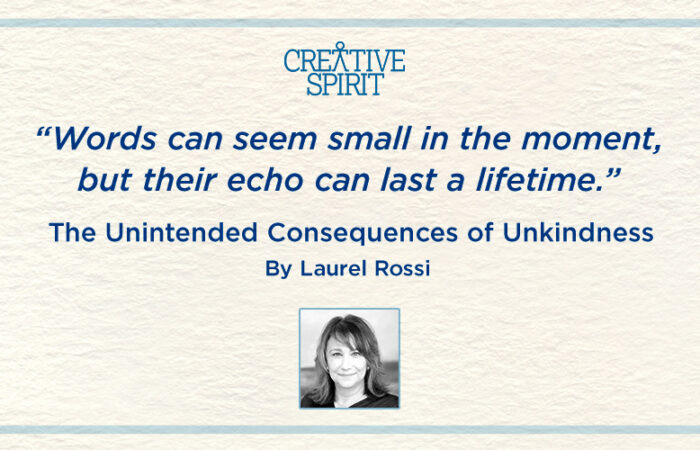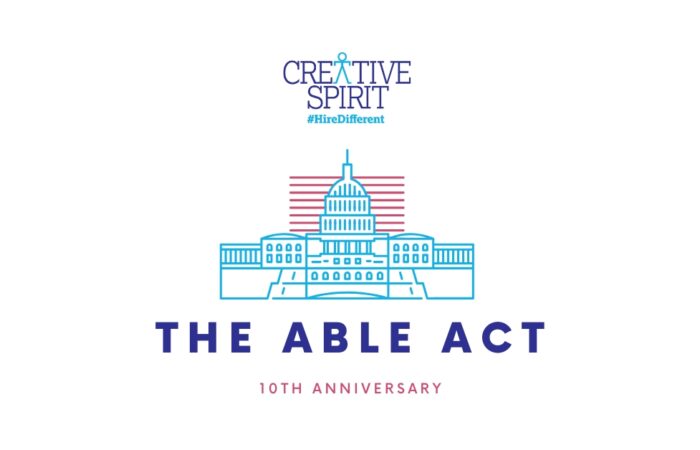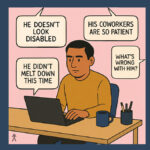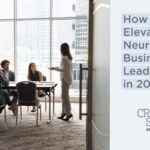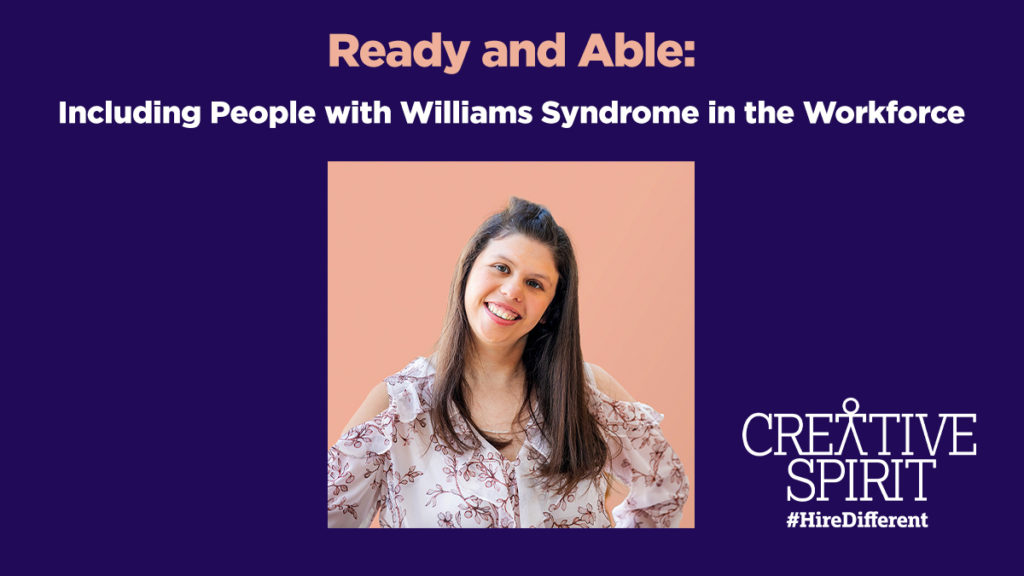
By Menachem Rephun, Communications Manager Creative Spirit and Self Advocate, and Joanna McElnea, Community Manager Creative Spirit and Self Advocate
1 in 7,500 to 10,000 people worldwide, and roughly 20,000 to 30,000 people in the United States live with the rare genetic condition known as Williams Syndrome (WS), also called Williams-Beuren Syndrome. Only 12% of companies are currently focused on hiring people with disabilities.
If you’ve ever met someone with WS, chances are you’ve been struck by their exceptionally warm, engaging, and outgoing personalities. Held every May, #WilliamsSyndromeMonth seeks to broaden awareness of WS, which, despite being discovered in 1961, is still largely unknown to most people. Williams Syndrome Month is our opportunity to address one of the most important issues for people with WS: fair-wage employment.
Williams Syndrome have many qualities that would make for valuable employees. Their positive, optimistic attitude and resilience, for example, allow them to reach their own standards that many would assume are not possible for individuals who think “differently”. Nevertheless, finding gainful employment remains an uphill battle for many people with Williams Syndrome, due to generations of segregation.
Thankfully, in the past several years we’ve seen a growing attitude shift towards recruiting people with disabilities, a development that bodes. Many major organizations, and influential companies like Google, IBM, Microsoft, Boeing, and many others have begun prioritizing disability hiring, and there’s no reason that people with Williams Syndrome should not be prioritized. Creative Spirit’s goal is to put talented candidates with Williams Syndrome on the radar of companies focused on hiring individuals with disabilities and prioritizing diversity, equity, and inclusion (DEI) in their workplace.
According to HR Dive.com, the number of companies that scored 80% and above on the Disability Equality Index (DEI) more than quadrupled in 2015 from 43 to 205.
HR Dive also reported that 85% of the companies that participated in the DEI have a company-wide written statement expressing their commitment to diversity and inclusion for people with disabilities.
“Now that employers and job programs are starting to better understand the needs of people with Williams Syndrome, the workplace might be getting more amenable for them,” the Atlantic observes.
Creative Spirit believes that individuals with William Syndrome deserve equitable representation and reasonable accommodations in the workforce. Through our job coaching and mentoring services, and partnerships with a wide range of organizations ready to hire, Creative Spirit is ensuring that people with Williams Syndrome are ready and able to work. In short, individuals with Williams Syndrome can succeed when equipped with the right support.
Sources:
1. The work experience of a patient affected by Williams Syndrome: a pilot project at the Bambino Gesù Children’s Hospital by Francesca De Lorenzo, Marina Macchiaiolo, Carla Maria Carlevaris, Andrea Bartuli
2. What Happens When You Trust Too Much For people who are pathologically innocent, as is often the case in Williams Syndrome, how do you hold down a job? The Atlantic By Tolly Moseley

